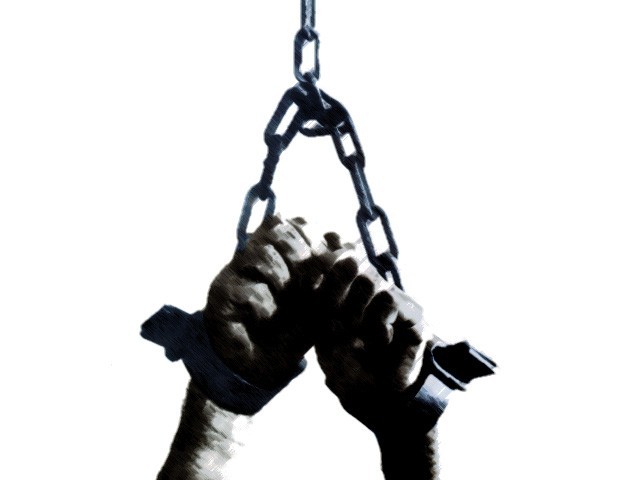By Charles Onians / AFP
CAIRO: Egypt’s feared state security services are using torture as much as they ever did, rights activists say, with no sign that their horrifying tactics are about to change despite the regime’s promise of reform.
Rights groups say that anger against routine police abuse and torture has been a driving force behind the massive popular protests in which at least 300 people have died and an unknown number were detained.
The regime has agreed to deal with complaints about the treatment of political prisoners and to lift an emergency law used to detain people without trial “depending on the security situation” in the face of the protests.
But official brutality and torture are continuing apace amid the 13-day revolt against President Hosni Mubarak’s regime, said Amnesty International’s Hassiba Hadj Sahraoui.
“When you see the beatings of protesters by security forces in the last 10 days there’s really no break in the way they continue to behave,” she told AFP.
“If this is about maintaining public order rather than trying to scare people, then they should acknowledge when they hold someone and publish the list of people detained,” she said, citing the disappearance of Google executive Wael Ghoneim, snatched by plain clothes security forces on Friday.
Foreign journalists arrested by security forces during the protests have given harrowing accounts of hearing Egyptians being tortured nearby during their detention.
Rights activist Aida Seif El-Dawla said that the use of torture is “business as usual.”
“State security are arresting people at protests, taking them from their homes and using torture against them, such as electric shocks,” she told AFP.
She cites security forces’ “destruction” of the Hisham Mubarak Law Centre and simultaneous arrest of dozens of rights activists there, including foreigners, as emblematic of the regime’s attitude to human rights.
Mubarak addressed the nation on Tuesday, saying: “My first responsibility is now to bring security and stability to the nation to ensure a peaceful transition of power.”
Since the speech, Seif El-Dawla said, “We have at least 30 documented cases of killings.”
“Mubarak must go,” she told AFP. “Nothing will change until he is gone: he is the commander in chief of torture and of the police.”
Mubarak’s axing of his much-hated interior minister, Habib El-Adly – who was in charge of the police – did little to calm the furious sea of protesters in Cairo’s Tahrir Square.
Seif El-Dawla said that El-Adly is still in charge, despite his replacement by Mahmoud Wagdi, himself a former head of the prison service where rights groups say torture is rife.
Activists say that while previously torture was reserved for political prisoners and terrorism suspects, it is now widely practiced even on petty criminal suspects.
The most recent case to have dominated headlines and sparked demonstrations was of Khaled Said, a 28-year-old man beaten to death by two undercover police officers on an Alexandria street in June.
Other notorious cases include Emad El-Kabir, who was sodomized with a stick in a police station in 2007, with images of the torture recorded on a mobile phone and broadcast on the Internet.
According to the government, a total of seven police officers have been sentenced for torture or inhumane treatment since 2006.
No one from the State Security Investigations, which monitors political dissent, has ever been prosecuted for torture.
But there is little hope for immediate change even if Mubarak were to go and be replaced by his Vice President Omar Suleiman.
“We’re changing a man, not the system. It’s difficult to have faith in Omar Suleiman considering his track record in human rights,” said Amnesty’s Sahraoui.
“In his previous capacity as head of military intelligence and intelligence he was involved in crushing opposition, particularly the Muslim Brotherhood. He was involved with the extraordinary rendition program with the US.”
That controversial program under ex-president George W. Bush involved terror suspects snatched by the CIA being taken to Egypt and other countries without legal proceedings and subjected to torture.
Many protesters have demanded that Mubarak go on trial for the alleged crimes of his regime.
“We will need first of all to investigate the extent of violations and unpack the chain of command and how it works,” said Sahraoui.
“Once this is clarified, no one should be safe from prosecution if they’ve been involved in torture.”

